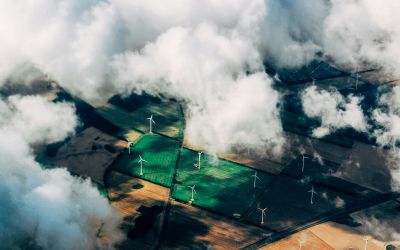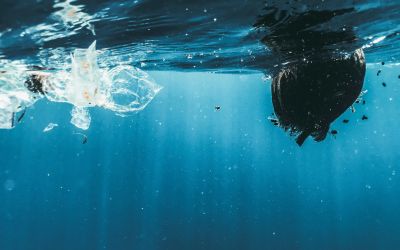Projects from Peru and Lao PDR share prestigious environment award
Two projects bringing renewable energy to villages in Peru and Lao People's Democratic Republic have been awarded the UNEP Sasakawa Prize 2008.
Two projects bringing renewable energy to villages in Peru and Lao People's Democratic Republic have been awarded the UNEP Sasakawa Prize 2008.
The two winning projects are Sunlabob Rural Energy Ltd (Lao PDR) and Practical Action (Peru). Both projects are bringing clean power, solar and hydro to remote rural communities that do not have access to grid electricity, on the Eastern slopes of the Andes and in the farthest-flung regions of Lao PDR.
The UNEP Sasakawa prize, worth $200,000, is awarded yearly to individuals or institutions who have made a substantial contribution to the protection and management of the environment.
The winners, who will each receive $100,000, were chosen by a five-member jury from a shortlist of six projects at a meeting in Tokyo.
The Prize acts as an incentive for grassroots environmental efforts that are sustainable and replicable. It recognizes extraordinary initiatives from around the world that make use of innovation and groundbreaking research and ideas and empower people at the local level.
This year's theme for the award was 'Moving towards a low carbon economy', the theme of World Environment Day 2008. The shortlist included four other outstanding projects bringing clean energy to thousands of people, from families in the Philippines to rural households in South India and prisons in Rwanda.
Achim Steiner, UN Under-Secretary-General and UNEP Executive Director, said: "Addressing the monumental energy challenge of the 21st century involves practical projects at ground level that bring tangible changes to the way people live.
Sunlabob and Practical Action are showing tremendous leadership in bringing clean energy to remote communities in Peru and Lao PDR, and in doing so they are setting further examples of the energy alternatives available to the developing but also the developed world."
The Winners
Sunlabob Rural Energy Ltd., set up in 2001, is bringing energy to remote rural communities in Lao PDR, a country where just 48 per cent of the population has access to grid electricity, mostly in cities and town. Through Sunlabob, over 1,800 solar-home-systems (SHS) and 500 solar lanterns are being rented to families in 73 different villages across Lao PDR.
In an area where most people rely on highly polluting kerosene lamps, the initiative rents out solar lighting at a lower price than kerosene, providing families with a real incentive to switch to the cleaner energy. The cheapest solar systems costs 35,000 kip per month (3.80$) to rent, while households typically spend 36,000 to 60,000 kip per month (4 to 6.60$) on kerosene for lighting. As well as being far less sustainable than solar energy, kerosene lamps can be dangerous, causing burns, starting fires and polluting the air indoors.
The equipment is rented through Village Energy Committees (VEC) selected by the whole community: this puts the community in control of setting prices, collecting rents and performing basic maintenance. The potential for growth in the use of solar PV in Lao PDR is huge: Sunlabob is installing systems at a rate of 500 per year, and a new investment this year will allow it to scale up to 2,500 systems per year, and 5,000 per year after that. The project is also highly replicable: Sunlabob is already starting work in Cambodia and Indonesia, and is exploring possibilities with interested potential partners in Bhutan, East Timor, Eastern Africa and Latin America.
Practical Action, founded in 1966, is working in Peru's eastern Andes where 68 per cent of the population - around 5 million people - do not have access to electricity. The project makes use of the region's vast potential for hydroelectricity: to date, 47 micro-hydro schemes have been installed in the area through Practical Action, bringing clean power to about 30,000 people. Through this project, Practical Action is also boosting local industry, as most of the turbines are manufactured by small companies in Peru to Practical Action designs ? with each company making three or four turbines a year. Practical Action says it sees local manufacture as a key step towards widespread use of renewable energy.
The electricity supply is boosting the development of the remote communities. Previously, people moved away to start businesses in places where the infrastructure was better, but the electricity from the micro-hydro schemes has brought them back. Some villages have doubled in size, with people returning and others starting or expanding businesses including restaurants, bakeries, furniture makers, welders and internet cafes.
Notes to editors
The UNEP Sasakawa Prize is sponsored by the Japan-based Nippon Foundation, an independent, non-profit grant-making organization that supports both Japanese and international philantropic projects. The UNEP Sasakawa Prize was originally created in 1982 by the late Ryoichi Sasakawa. The Prize was re-launched in its current format in 2005, and is currently chaired by Mr. Sasakawa's son, Yohei Sasakawa. The five members of the 2008 UNEP Sasakawa Prize jury are UNEP Executive Director Achim Steiner, Nippon Foundation Chairman Yohei Sasakawa, 2004 Nobel Peace Prize Laureate Professor Wangari Maathai, 1995 Nobel Chemistry Prize Laureate Professor Mario Molina, and Ms Wakako Hironaka, Member of Japan's House of Councillors.
As well as the two winning projects, the 2008 shortlist also included four other projects bringing renewable energy to remote communities in Africa and Asia. The Kigali Institute of Science, Technology and Management has brought biogas power to six prisons in Rwanda, halving the need for firewood and improving sanitation for 30,000 prisoners. The Alternative Indigenous Development Foundation is installing hydro-powered water pumps for poor communities in the Philippines. The Mwanza Rural Housing Programme is training villagers in northern Tanzania to make high-quality bricks from local clay, fired with agricultural residues rather than wood. And SKG Sangha has set up a biogas programme in southern India to replace fuelwood with biogas for cooking in rural households, and also to increase household income by making a saleable fertilizer from biogas residue and other unmanaged agricultural organic waste.
For more information, please visit the UNEP Sasakawa Prize website at: http://www.unep.org/sasakawa or e-mail: sasakawaprize@unep.org
To find out more about World Environment Day, go to: http://www.unep.org/wed/2008/english






